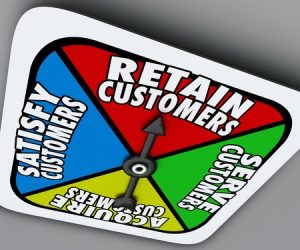
Most experienced business executives agree that in order to get and retain customers, it is critical to build customer relationships. But whose job is that? In one word: everyone’s. In the 1980s, Singapore Airlines trained their agents in this concept by claiming there are only two departments in the company: inside sales and outside sales. But not every company is set up that way. Traditionally, the individuals involved in building customer relationships are those in marketing, sales and customer service. While there might be some overlap in each of these areas, their responsibilities vary.
Marketing’s Job
First consider marketing’s role. Marketing involves everything the company does to generate interest in its current (and future) products or services. Marketing leverages its knowledge of the marketplace to persuade, inform, educate, announce and invite responses from customers and potential customers. In that context, every communication or touch point is an opportunity to build a relationship. Why? Because people respond viscerally to what they hear, see, think and feel. The more frequently marketing demonstrates a focus on the target audience’s needs, concerns and challenges, the more likely the seller will be seen in a favorable light. That is the first step in building customer relationships.
What can marketers do to create a positive impression? They can ask the right questions, generate meaningful messaging, communicate consistently and engage in dialogue, whether in person or online. It is marketing’s job to develop messaging that delivers on the company’s brand and demonstrates the organization’s leadership, expertise, credentials and proven track record of success. In that way, over time, prospects will begin to “like” and trust the company. With increased visibility, credibility and name recognition in the marketplace, marketing helps salespeople deepen relationships. This leads to closing more deals and achieving revenue goals.
Sales’ Job
The sales team benefits from the job marketing has done to identify those individuals and companies that are open to exploring a business relationship. But salespeople cannot rely on the relationships that marketing established without creating their own connections. While marketing relationships are often responsive and in some cases intangible, sales relationships are more direct and proactive. Sales relationships are based on the ability to convince prospects to make positive buying decisions. To build the customer relationships that lead to achieving revenue goals, salespeople need to:
1. Demonstrate a customer-centric orientation.
2. Engage in further qualification to assess needs.
3. Listen carefully and check for accuracy of understanding.
4. Deliver effective presentations.
5. Answer questions and address objections in a non-threatening way.
6. Ask for the order.
7. Assure new customers they are making a sound business decision.

In this way, customers view salespeople as helpful professionals interested in the success of others. Their goal is to be of service and help prospects make the right decisions for their organizations. Even if a potential buyer doesn’t sign on the dotted line, the salesperson has earned the respect of the prospect and permission to stay in touch. From this perspective, sales and marketing have ongoing roles in the relationship building process.
Customer Service’s Job
The role of customer service varies depending on the nature of the products or services, the size of the company, the organizational structure and other variables. In some companies, the sales staff performs the customer service function. In other organizations, there is a separate department to handle customer service, whether it is in-house or outsourced.
Regardless of who performs this function, customer service plays a vital role in building and maintaining customer relationships. They do this by demonstrating professionalism (competence and skill), showing a personal interest in their customers and being creative and resourceful in solving problems or answering questions. While emotions are a large part of the prospect’s buying process, keeping them as customers requires more logic than emotion. That’s why it is especially important to provide prompt follow up and follow through on every customer request. More than anything else, that focus and commitment build loyalty and long-term relationships with customers.
Nurture Customer Relationships

Powerful customer relationships are essential to business success. But, they aren’t built overnight. Just like personal relationships, it’s important to cultivate and nurture customer relationships. When organizations develop strong relationships with their customers, it can lead to loyal clients, positive word of mouth and increased sales. On the other hand, while meaningful relationships require time and effort to build, they can fall apart quickly. Relationships taken for granted deteriorate in a flash. The key philosophy to remember is that strong relationships are built around making the other person feel important. When you accomplish this on an ongoing basis, success will follow.


Comments are closed.